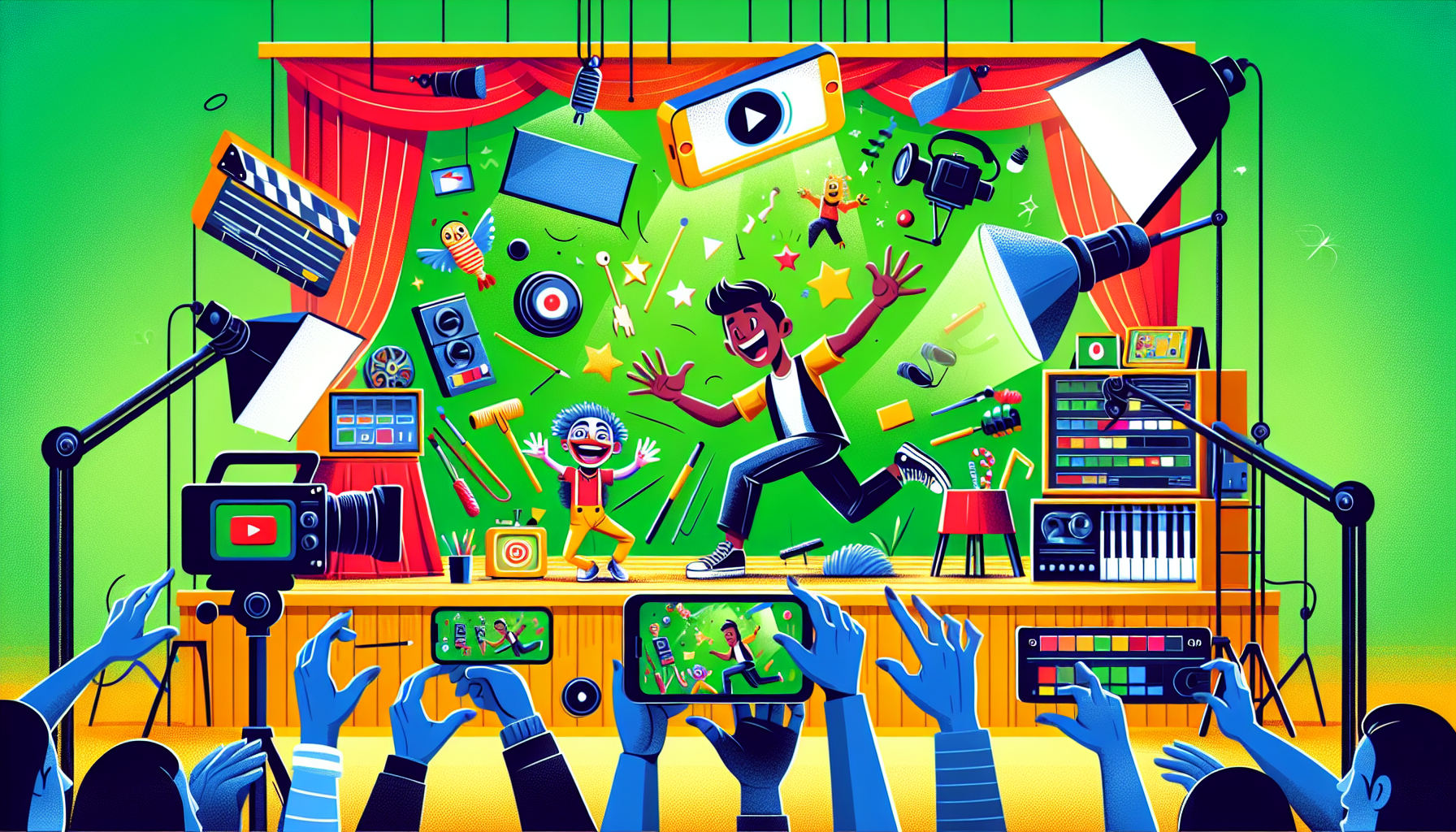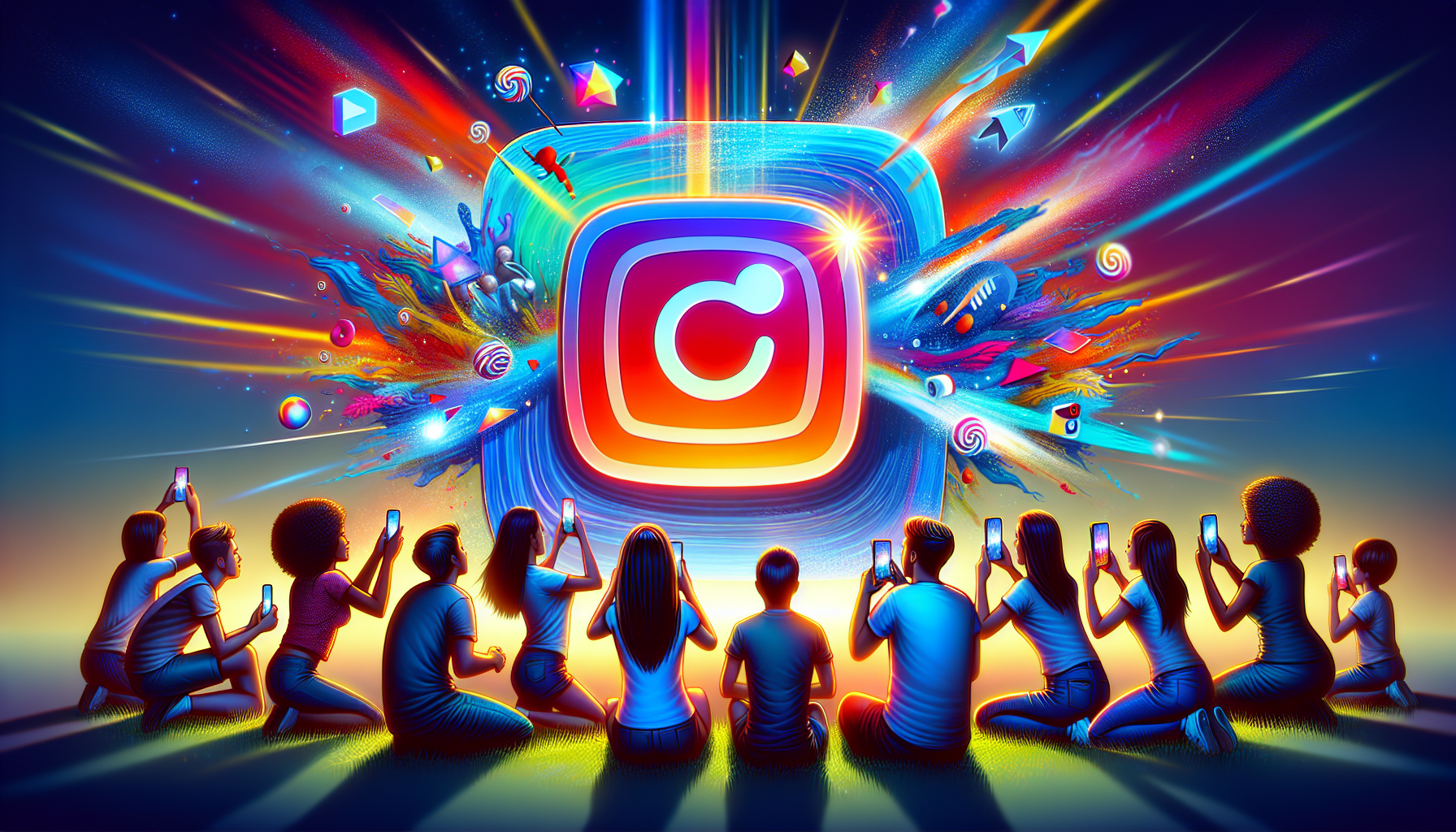Wondering which social media platforms to use to elevate your brand in 2024? This guide breaks down the top platforms that can help you connect with your audience and grow your online presence.
Key Takeaways
Facebook remains the top choice for businesses, offering extensive advertising tools, customer engagement options, and effective community-building through groups.
Instagram excels in visual content and influencer marketing, providing numerous creative formats and strong e-commerce features, making it essential for brands targeting younger demographics.
Selecting the right social media platforms depends on understanding your target audience, aligning with marketing goals, and conducting competitive analysis to identify effective channels for maximizing reach and engagement.
Facebook – The Go-To Platform for Businesses

Unrivaled in popularity, Facebook boasts 3 billion monthly active users worldwide, securing its position as the world’s most popular social media platform. For businesses, it’s a goldmine of opportunities, offering essential tools for customer service, advertising, and community engagement.
One of Facebook’s standout features is its robust advertising capabilities. With more than 7 million active advertisers, Facebook Ads Manager allows businesses to target their audience with precision. This makes it a vital tool for brand engagement and growth. Whether you’re looking to increase brand awareness or drive conversions, Facebook’s advertising platform offers unparalleled reach and effectiveness.
In addition to advertising, Facebook Groups provide a unique opportunity for brands to:
Build intimate connections with their followers
Over 1.8 billion people use Facebook Groups each month, creating a space for personalized interactions and community building
Creating private groups enables businesses to cultivate customer loyalty and exclusivity.
Customer service is another area where Facebook excels. A staggering 60% of consumers use Facebook for customer service, making it a crucial platform for addressing customer inquiries and concerns. Utilizing these tools empowers businesses to deliver exceptional customer support and fortify their audience relationships.
Instagram – Visual Content and Influencer Marketing Hub

Instagram has cemented its place as the go-to platform for visual content and influencer marketing. With over 2 billion monthly active users, it’s particularly popular among younger adults, especially those under 35. If your brand thrives on visuals and targets a younger demographic, Instagram is a must-have in your social media strategy.
The platform’s diverse content formats on Instagram include:
Photos
Carousels
Stories
Reels
These formats offer endless possibilities for creativity and engagement. Instagram Stories, with their ephemeral nature, encourage quick, engaging interactions and boast 500 million daily active users. Brands can use Stories to share behind-the-scenes content, product launches, and real-time updates.
Instagram is also a powerhouse for shopping and e-commerce. Seventy percent of shoppers turn to Instagram for their next purchase, leveraging the platform’s shoppable posts and Reels. This makes Instagram an essential tool for brands looking to drive sales and showcase their products in a visually appealing manner.
Influencer marketing is another area where Instagram shines. Collaborations with influencers or creators can significantly amplify your reach and resonate with Gen Z and Millennial audiences. Collaborating with influencers allows brands to engage with existing communities and foster trust with their target audience.
YouTube – Harnessing the Power of Video Content

YouTube, the second-largest search engine in the world, is an unparalleled platform for reaching and engaging with audiences through video content. With over 2.5 billion logged-in users each month, YouTube offers a vast audience for brands to connect with.
Video content on YouTube can take many forms, from long-form educational videos to short, engaging YouTube Shorts. Brands that balance educational and entertaining content tend to perform well, as they can cater to the diverse preferences of YouTube users. With over 1 billion hours of video watched daily, the potential for engagement is immense.
Creating content that reflects your brand’s values and products, while tapping into popular YouTube trends, can help maximize your reach. YouTube offers a versatile platform to showcase your brand and engage effectively with your audience through diverse content forms such as tutorials, product reviews, or behind-the-scenes footage.
TikTok – Captivating a Younger Audience with Short-Form Videos

TikTok has taken the social media world by storm, particularly among younger audiences. The platform is especially popular with users aged 12 to 17, making it a prime channel for brands targeting Gen Z. With its emphasis on short-form, engaging video content, TikTok offers a unique way to capture the attention of a younger demographic.
To succeed on TikTok, brands need to focus on creating entertaining and engaging content that hooks viewers within the first few seconds. The TikTok algorithm prioritizes engagement and watch time, so it’s crucial to make your videos captivating from the start. Leveraging musical, comedic, or informative elements can help distill your brand’s message into bite-sized, impactful pieces.
TikTok influencers play a significant role in mobilizing audiences for various causes and trends. Brands can broaden their reach and connect with TikTok’s energetic community through collaborations with influencers. The platform’s ability to translate news stories and trends into engaging short-form videos makes it a powerful tool for modern social media marketing.
LinkedIn – Networking and B2B Marketing
LinkedIn stands out as the premier platform for networking and B2B marketing. With over 900 million users worldwide, it offers a wealth of opportunities for professional engagement and lead generation. The platform is particularly effective for brands looking to connect with a professional audience, including senior roles and decision-makers.
LinkedIn’s hyper-targeting capabilities allow brands to reach specific professional demographics with precision. This makes it an invaluable tool for B2B marketers, with 40% considering it the most effective platform for generating high-quality leads. Additionally, LinkedIn’s rich demographic data and interest-based filtering enhance its targeting efficiency.
Content on LinkedIn ranges from text posts to images and videos. LinkedIn Live, for instance, generates significantly higher engagement than regular videos, making it a powerful tool for real-time interaction. Posts with images also see higher engagement rates, emphasizing the importance of visual content in professional settings.
For brands, LinkedIn is not just about networking; it’s also a platform for:
Establishing employer branding
Recruiting top talent
Establishing themselves as industry leaders
Attracting suitable talent by disseminating valuable insights, industry news, and company updates.
WhatsApp – Personalized Brand Communication
WhatsApp is a titan in the realm of personalized brand communication, with over 2.78 billion monthly active users. Its global reach and user-friendly interface make it an essential platform for businesses looking to connect with customers on a personal level, similar to Facebook Messenger.
WhatsApp Business, launched in 2018, has become a crucial tool for small and large businesses alike. It offers two primary solutions: the WhatsApp Business app for small businesses and the WhatsApp Business API for enterprises. These tools enable businesses to provide customer support, share real-time updates, and engage with their audience directly.
The platform’s end-to-end encryption ensures secure communication, making it a trusted choice for customer interactions. WhatsApp enables brands to deliver personalized messages, disseminate multimedia content, and provide prompt support. This level of personalized engagement can significantly enhance customer satisfaction and loyalty.
WhatsApp’s global reach allows brands to connect with customers regardless of their location or phone provider. This makes it an invaluable tool for businesses looking to expand their reach and provide exceptional customer service worldwide.
Twitter (X) – Real-Time Engagement and News Updates
Twitter, now rebranded as X, remains a powerhouse for real-time engagement and news updates. With 550 million monthly active users, it’s particularly popular among social media users aged 35 to 65, predominantly male. The platform’s real-time nature makes it ideal for breaking news and direct communication with audiences.
Brands can use Twitter to:
Share bite-sized content
Share educational videos
Conduct opinion polls
Start discussion threads
These content types can effectively engage audiences and foster interaction on social platforms, including other social media platforms as well. The platform’s focus on real-time information sets it apart from other social networking sites, making it a valuable tool for trend engagement and customer service.
Twitter’s rebranding to X has come with its own set of challenges, but the platform continues to be a vital channel for brands looking to stay relevant and connected with their audience. Utilizing Twitter’s distinctive features allows brands to engage effectively with followers and promptly address customer service inquiries.
Pinterest – Driving Traffic Through Visual Discovery

Pinterest is a visual discovery engine that excels at driving traffic and inspiring users. With over 433 million monthly active users, Pinterest is particularly popular among women, who make up nearly 80% of its user base. For brands related to lifestyle, fashion, home decor, or DIY culture, Pinterest offers a unique opportunity to reach a highly engaged audience.
The key to success on Pinterest lies in creating polished visuals with clear, compelling copy. Here are some tips to help you create engaging content on Pinterest:
Use vertically formatted images, as they perform best on the platform.
Align your visuals with popular search terms and keywords to increase visibility.
Consider using lists and quotes, as they are effective content types that resonate well with Pinterest users.
By following these tips, you can optimize your content for success on Pinterest.
Pinterest is not just about visual appeal; it’s also a powerful tool for spotting emerging trends and targeting niche audiences. Recognizing popular topics and themes on Pinterest enables brands to customize their content, meeting their audience’s interests while driving traffic and enhancing brand awareness.
Snapchat – Engaging Gen Z with Ephemeral Content
Snapchat is a favorite among Gen Z, with 58.8% of its daily users aged between 13 and 24. The platform’s ephemeral nature, where content disappears after a short period, appeals to the younger generation’s desire for authenticity and real-time interaction.
For businesses, Snapchat offers various ways to engage with this younger demographic. Popular content types include:
User-generated content
Behind-the-scenes videos
Exclusive offers
Influencer takeovers
These formats allow brands to create a sense of urgency and exclusivity, which can drive engagement and brand loyalty.
Snapchat also provides innovative features like interactive AR experiences, which can be shared among users. Utilizing these innovative tools, brands can design immersive and memorable experiences that strike a chord with Gen Z. The platform’s focus on short-form, engaging content makes it a powerful channel for capturing the attention of a younger audience.
Reddit – Authentic Community Engagement
Reddit is a platform that thrives on authentic community engagement. With over 100,000 active subreddits, Reddit offers brands the opportunity to engage with niche communities and contribute genuinely to discussions. This authenticity is key to building trust and credibility on the platform.
Reddit’s 52 million daily active users are known for their active participation and valuable insights. Brands can engage with these users by sharing tips, resources, and participating in subreddit discussions related to their industry. However, it’s crucial to follow Reddit’s guidelines for self-promotion to avoid backlash from the community.
Engaging thoughtfully with Reddit communities empowers brands to gather valuable feedback, promote their offerings, and position themselves as industry leaders. The platform’s emphasis on genuine interaction and community-driven content makes it a unique and powerful tool for brand engagement.
Messaging Apps – Expanding Reach Beyond Traditional Platforms
Messaging apps like Telegram and WeChat offer brands unique opportunities to expand their reach beyond traditional social media platforms. With 1.32 billion monthly active users, WeChat is particularly important for brands targeting China and other parts of Asia. As a messaging app, Telegram, known for its strong security features and large group messaging capabilities, also provides a valuable platform for global engagement. In this competitive landscape, social media apps such as these are essential for businesses to consider in their marketing strategies.
These apps support various business functions, from customer support to marketing and sales. For instance, brands can use chatbots, live chat, and video consultations to facilitate easier buying experiences and provide personalized customer service. Telegram’s channel feature allows businesses to broadcast messages to up to 200,000 people, making it an effective tool for reaching large audiences.
Deploying messaging apps for customer interactions can:
Aid in managing social media crises
Transform customers into brand advocates through personalized care and exclusive offers
Provide global reach and unique functionalities
Help modern businesses connect with their audience in new and innovative ways.
Emerging Platforms to Watch
As the social media landscape continues to evolve, several emerging platforms are worth keeping an eye on. BeReal, for instance, focuses on authentic content by allowing users to post unedited photos within a two-minute window. This emphasis on authenticity sets it apart from other platforms and offers a fresh approach to content sharing.
Mastodon is another intriguing platform, offering a decentralized social network composed of independent servers organized around specific themes or interests. Similar to Twitter, users have the ability to create posts and engage in conversations, as well as add images, audio, and video. Mastodon’s decentralized nature and focus on community moderation provide a unique alternative to traditional social networks.
Bluesky, created by Twitter co-founder Jack Dorsey, is a decentralized, invite-only social network built on an open-source protocol. Its features include:
Federated design that allows users to choose between different servers, giving them more control over their online experience
Exclusivity and innovative approach
Currently in beta
Bluesky is a platform to watch for early adopters and forward-thinking brands.
Which Social Media Platforms Are Right for Your Brand?
Choosing the right social media platforms for your brand is a critical decision that can significantly impact your marketing success. Incorporating a well-planned marketing strategy, the most crucial factor to consider is your target audience. Understanding where your most active audience spends their time can help you maximize your brand’s reach and engagement.
Aligning your platform choice with your marketing goals is also essential. Different platforms cater to different types of content and marketing objectives, so it’s important to match your brand’s products and services with the platform that best suits your needs. For instance, if your goal is to reach a younger audience with engaging short-form videos, TikTok might be the ideal choice.
Conducting a competitive analysis can provide valuable insights into which platforms your competitors are using effectively. This can help you identify opportunities and gaps in your social media strategy. Ultimately, it’s about finding the right balance and choosing platforms that align with your brand’s unique goals and resources. Some popular social media platforms to consider are:
Facebook
Instagram
Twitter
LinkedIn
Pinterest
YouTube
By analyzing your competitors’ presence on these platforms, you can make informed decisions about where to focus your social media efforts.
Summary
In summary, the social media landscape in 2024 offers a diverse array of platforms, each with its unique strengths and opportunities. From the vast user base and advanced advertising tools of Facebook to the visual appeal and influencer marketing potential of Instagram, there’s a platform to suit every brand’s needs.
YouTube and TikTok continue to dominate with their engaging video content, while LinkedIn remains the top choice for B2B marketing and professional networking. WhatsApp and other messaging apps offer personalized communication channels, while emerging platforms like BeReal, Mastodon, and Bluesky present exciting new opportunities for authentic content sharing and community engagement.
Choosing the right social media platforms for your brand involves understanding your target audience, aligning your platform choice with your marketing goals, and conducting a thorough competitive analysis. By leveraging the strengths of each platform, you can create a comprehensive social media strategy that drives engagement, builds brand loyalty, and achieves your business objectives.
Frequently Asked Questions
What are the most important factors to consider when choosing a social media platform for my brand?
When choosing a social media platform for your brand, it’s crucial to consider your target audience, align your choice with your marketing goals, and analyze your competitors’ successful platform usage. Focus on understanding your audience, setting goals, and studying competition to make an informed decision.
Why is Facebook considered essential for businesses?
Facebook is considered essential for businesses because of its vast user base, powerful advertising tools, and opportunities for community engagement. These features can greatly benefit a business in reaching its audience and establishing a community.
How can Instagram benefit my e-commerce brand?
Instagram can benefit your e-commerce brand by offering various content formats like Stories and Reels to drive engagement, as well as shoppable posts for direct purchases. Embrace these features to enhance your brand’s visibility and sales potential on the platform.
What makes LinkedIn a valuable platform for B2B marketing?
LinkedIn’s hyper-targeting capabilities, large professional user base, and tools for lead generation and employer branding make it a valuable platform for B2B marketing, allowing businesses to reach and engage with their target audience effectively.
Are there any new social media platforms to watch in 2024?
Yes, keep an eye on emerging platforms like BeReal, Mastodon, and Bluesky for new opportunities in authentic content sharing and decentralized social networking.
Are you interested in finding out more? Browse the rest of our blog for other marketing tips. If you’re ready to create your first email, survey, sign-up form, or landing page then register for a free trial to get the tools you need to build powerful marketing campaigns!
© 2024, Vertical Response. All rights reserved.